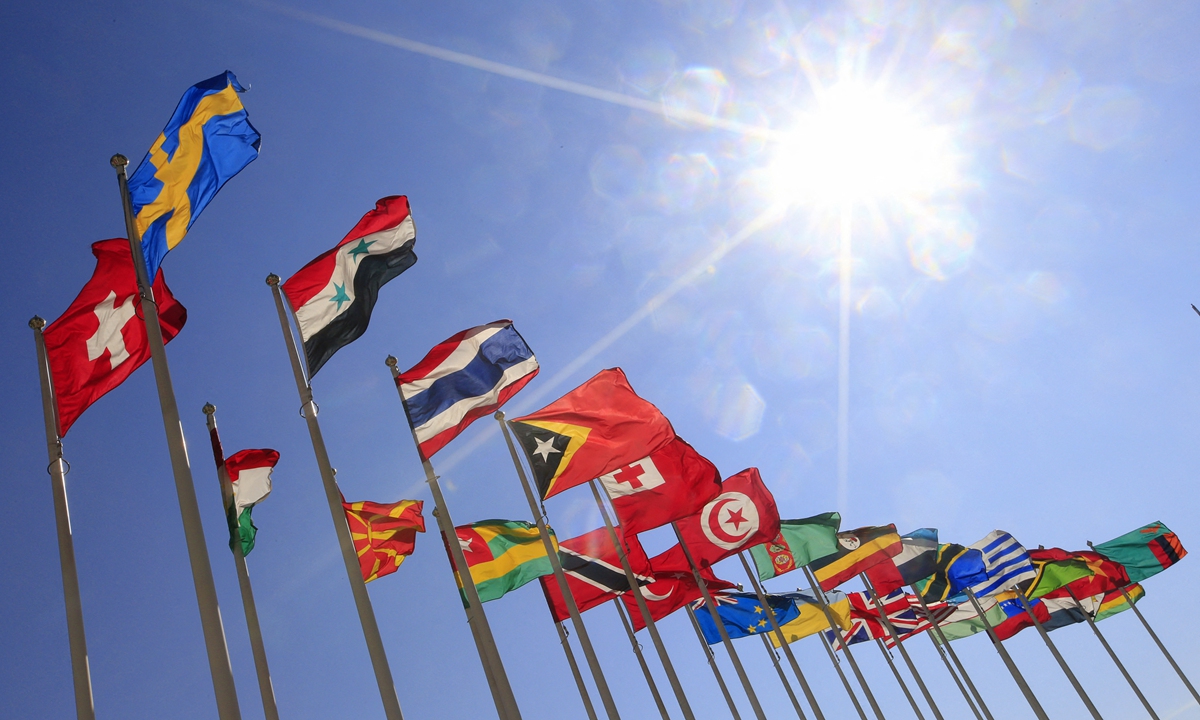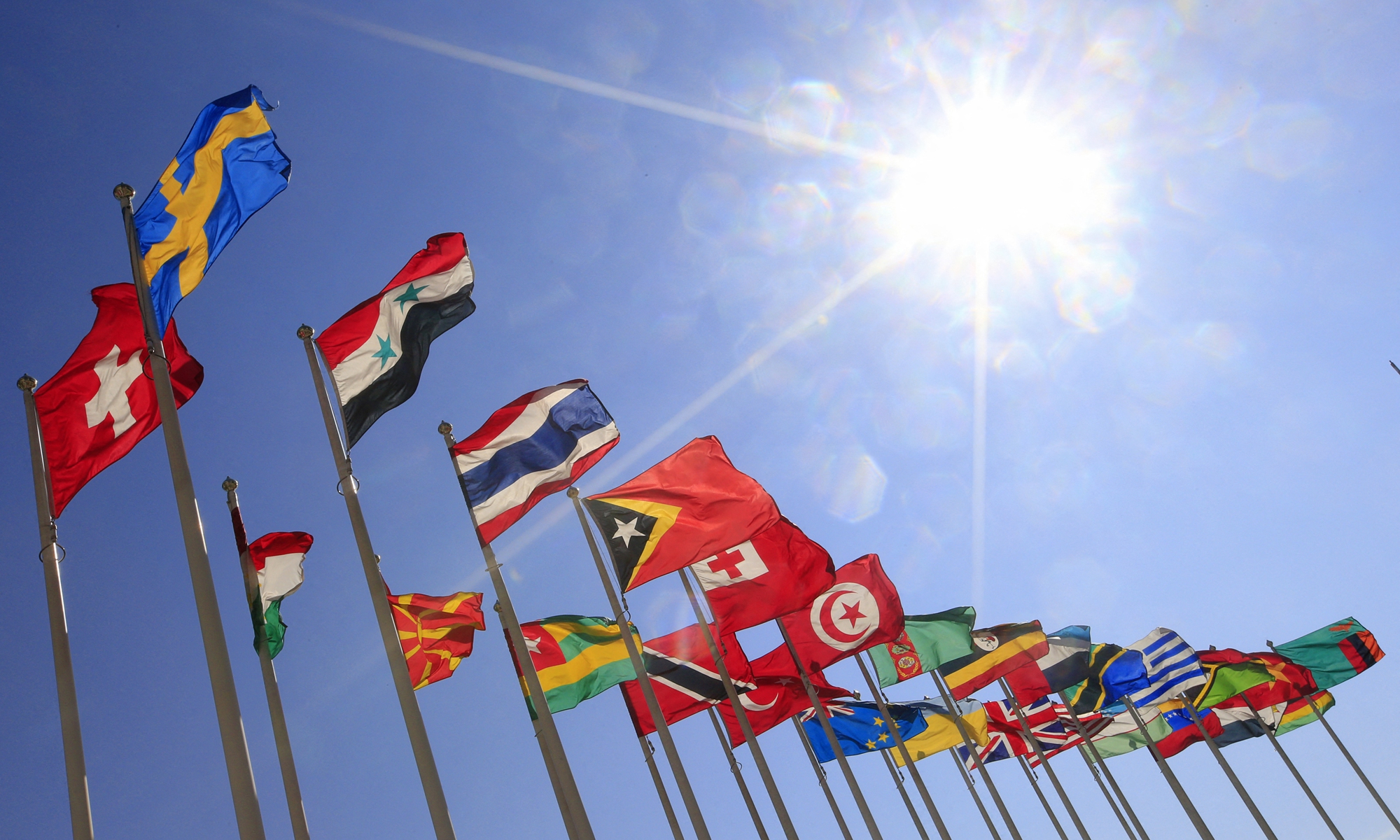IN-DEPTH / IN-DEPTH
Non-coercive diplomacy championed by China rooted in Chinese culture of harmony without uniformity: expert

Various national flags at the United Nations building at Vienna?Photo: AFP
With booming comprehensive national strength and influence on the international stage, China is now more inclined to practice the concept of diplomatic equality on the world stage, to help build a peaceful international environment and sound relationships with its neighbors, Fan Peng, a research fellow at the Chinese Academy of Social Sciences' Institute of Political Sciences, told the Global Times.
In reviewing the development and context of the concept of equality in China's diplomacy over the last decade, Fan pointed out that China has long been committed to the purposes and principles of the UN Charter and international law, also a cornerstone for most developing countries.
China, once a victim of hegemonism and great power chauvinism, is even more aware of the importance of "respect and equality" for developing countries. Now, amid more global change, uncertainty, and more complex ideologies, China is aware of how conflicts and crises should be regulated by the purposes and principles of the UN Charter as well as universally recognized international law, and by no means self-made "rules" by a certain group of countries, Fan added.
The philosophy of some Western countries such as the US is based on coalitionalism and the patronage of small countries by the powerful big, said Fan.
With roots in China's traditional culture that stresses harmony without uniformity, China's concept of diplomatic equality is based on recognizing the differences between regions, nations, and ethnicities, and reconciling such differences in a respectful and equitable manner. The diplomacy policies of the CPC attempt to tackle major international and regional issues equally on the basis of the interests of each party, and oppose the pursuit of one's own agenda at the expense of other countries' legitimate rights and interests which will eventually lead to a zero-sum game scenario, said the expert.
Fan explained that an apparent shift in China's diplomatic position probably came after the start of the US-initiated trade war with China. China's increasing exposure to unpredictable risks and the West's heightened unilateralism have brought about major changes in China's diplomatic practices. China needs to make its voice heard on the international stage, fighting for equal rights. At the same time, China is actively seeking the support of other developing countries, but has never engaged in unilateralism or forced other countries to pick sides, said Fan.
As Chinese Foreign Ministry Spokesperson Zhao Lijian once said in response to US Secretary of State Antony Blinken's accusation against China, "China never coerces others, and we firmly oppose coercion by other countries. One of the traditions in China's diplomacy is that we believe all countries, big or small, are equal."
China never threatens other countries with force, never forms military coalitions or exports ideology. China never makes provocations at others' doorstep nor extends its reach into others' homes. It never wages trade wars or groundlessly hobbles foreign companies, and never bullies, sanctions, or carries out long-arm jurisdiction, said Zhao.

